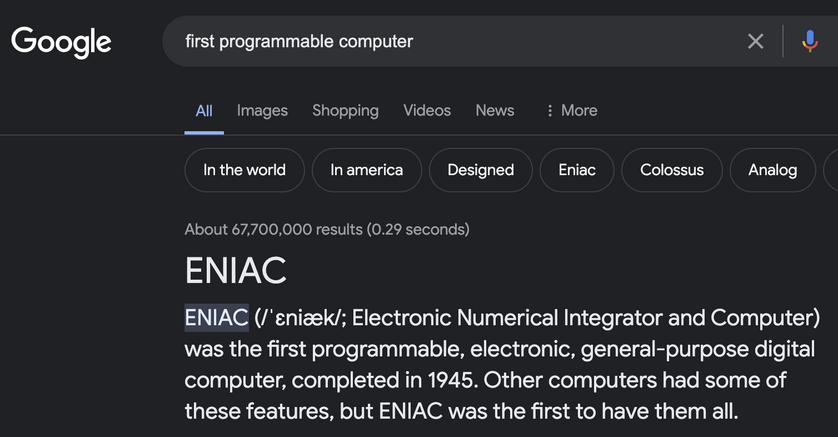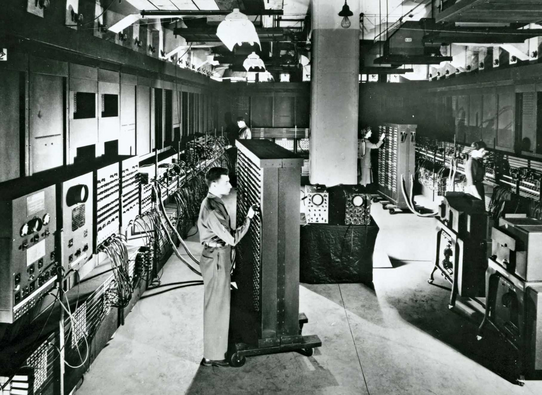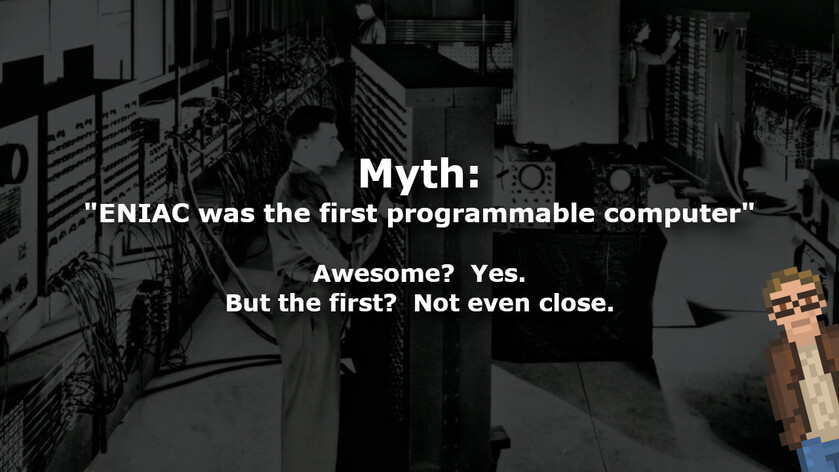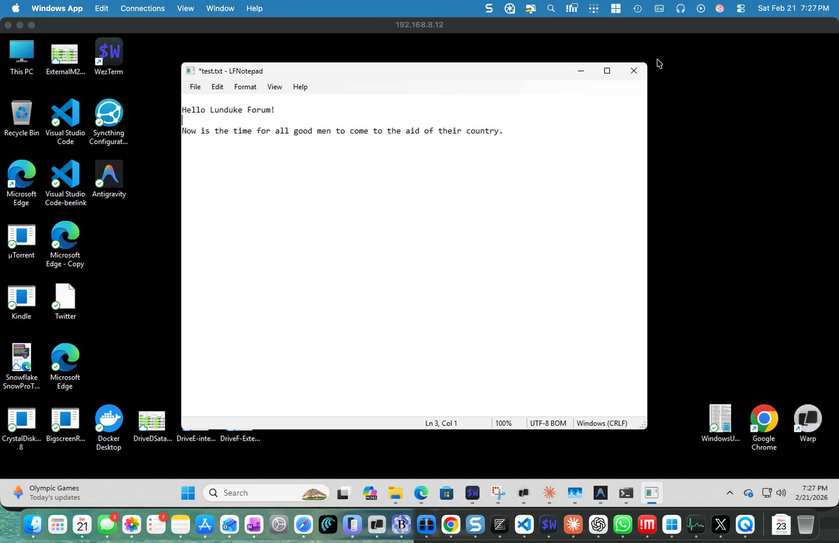What was the first programmable computer?
An historically significant, yet simple question... right? Considering how important computing was, in the 20th century, you'd think we should be able to provide a consistent, difinitive answer to that question.
And, yet, if you ask most sources... they'll get it wrong.
Go a head. Ask almost any source, "What was the first programmable computer?". Most of them will give you the same answer. The ENIAC.
Case in point, here's Google:

And, just for good measure, Bing:

We could go through examples of sources getting this wrong all day long -- from encyclopedias to AI chatbots... to people on Twitter who "totally know about computers".
Instead, let's debunk this myth right now:
The ENIAC was not the first programmable computer.
And the proof is simple. Here is a chronological list of some notable, early (successful) efforts at building a programmable computer.
- 1938 - Z1
- 1940 - Z2
- May 12, 1941 - Z3
- 1942 - Atanasoff-Berry Computer
- Note: Not Turing complete
- Dec, 1943 - Colossus Mark 1
- Note: Not stored program
- Jun 1, 1944 - Colossus Mark 2
- Note: Not stored program
- Aug 7, 1944 - Harvard Mark I (Automatic Sequence Controlled Calculator)
- Dec 10, 1945 - ENIAC
Even if we fully discount the Atanasoff-Berry Computer (often known simply as "ABC"), due to it not being fully programmable (and not Turing complete)...
And, even if we discount both of the Colossus machines (Mark 1 and Mark 2) because neither of them were stored program computers (meaning programs needed to be entered manually, via switches, each time the computer ran)...
That still leaves the Z1 (1938), Z2 (1940), & Z3 (1941, all built by Konrad Zuse) and the Harvard Mark I (fist operational in 1944, designed by Howard Aiken) as being fully functional prior to the ENIAC.
Which means that -- at best -- the ENIAC was the fifth functional, programmable computer. And that's being more than a little generous to the ENIAC (because, honestly, I think we should include the Colossus machiens in there as well... bumping ENIAC down to 7th place).
The ENIAC was still pretty awesome
None of this takes away from the significance of the ENIAC -- it was a grounbreaking machine, moving away from many of the electromechanical components of computers like the Harvard Mark 1. The result was a significant boost in speed, and significant design changes.

And, perhaps that is one reason why this myth -- that the ENIAC was the first programmable computer -- has persisted as long as it has.
- The Harvard Mark 1 and the Zuse machines all had some amount of mechanical parts... the ENIAC moved over almost entirely to electronic parts.
- The earlier Colossus computers were also electronic... but did not have stored programs. The ENIAC did.
The tenacity of this myth may also simply be due to the fact that ENIAC had some fantastic PR.
Either way, while the ENIAC was -- clearly -- not the first programmable computer (nor the first digital or electronic computer)... it was still... very, very cool.

















